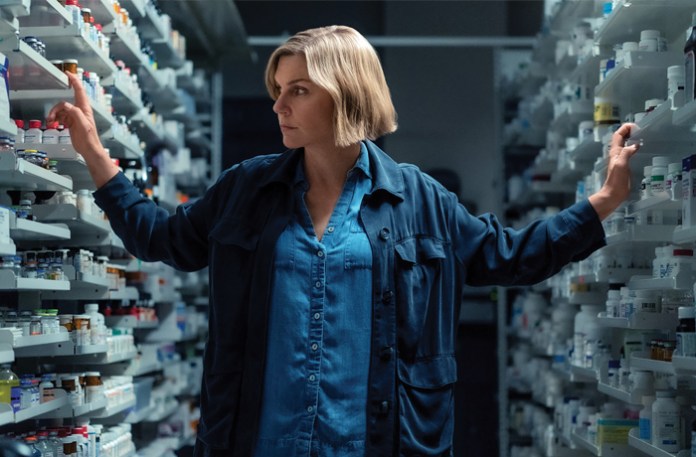Vince Gilligan, the architect of television’s most gripping slow burns, has done it again. While his previous masterpieces, *Breaking Bad* and *Better Call Saul*, initially unfolded with deliberate pacing, they ultimately cemented his status as a visionary storyteller. Now, his latest creation doesn’t ease you in – it explodes onto the scene with the force of a champion.
This new series, *Pluribus*, centers around a chilling premise: a “happiness disease” sweeping across the globe. It’s not a virus that kills, but one that rewires the human brain, dissolving individuality into a placid, unified consciousness. Imagine a world where conflict vanishes, replaced by a monotonous contentment – a hive mind where everyone smiles, but no one truly *lives*.
Rhea Seehorn, unforgettable from *Better Call Saul*, embodies Carol Sturka, a fiercely independent novelist and one of the rare few immune to this unsettling transformation. Her world shatters when the “Joining” begins, claiming the life of her partner and billions of others. Suddenly, she’s not just surviving, but hunted – a threat to the newly established order.

The echoes of recent global events are undeniable, yet Gilligan insists the core concept predates the pandemic. However, the series’ method of rewriting humanity subtly mirrors the very mRNA technology behind widespread vaccinations, adding a layer of unsettling resonance. *Pluribus* isn’t simply a reflection of our fears; it’s a provocative exploration of what it means to be human.
The transformed world is eerily polite, almost disturbingly so. Those who have “Joined” are incapable of dishonesty, violence, or even refusing a request. They possess a collective consciousness, knowing everything about everyone, from trivial details to deeply personal memories. This unnerving civility creates a darkly comedic tension, ripe for dramatic conflict.
Carol’s interactions with this new society are brilliantly unsettling. A simple request for a grenade is met with immediate compliance, showcasing the hive mind’s unsettling literalness. The survivors’ meet-and-greet reveals a bizarre new family dynamic, where exemptees find themselves related to former acquaintances in the most unexpected ways.
As Carol cautiously re-enters the world, she begins to understand the motivations of her relentlessly friendly adversaries. By the midpoint of the season, she’s formulating a plan to reverse the Joining, to restore the world to its former, chaotic state. But the series subtly challenges this very desire, questioning whether the old world was truly worth saving.
“We know what it feels like to be you,” a member of the hive tells Carol, “We’ve been you. But you’ve never been us.” This unsettling statement forces both Carol and the audience to confront the possibility that perhaps, a world without malice and suffering isn’t such a terrible thing.
The series invites multiple interpretations – a commentary on political polarization, a critique of collectivism, or simply a thrilling sci-fi fable. It raises profound questions about freedom, individuality, and the very nature of happiness. Is a life of peaceful conformity preferable to the messy, unpredictable reality of human existence?
Gilligan’s masterful storytelling shines through in every frame. He’s a master of suspense, comfortable with silence, ambiguity, and seemingly irrelevant details that ultimately coalesce into a breathtaking whole. *Pluribus* is a testament to his skill, a show that rewards patience and demands attention.
The eight-minute wordless sequence in episode four is a prime example of his genius – a mesmerizing, bewildering experience that leaves you utterly captivated. It’s a reminder that the best television isn’t about instant gratification, but about immersive world-building and compelling character development. *Pluribus* is a show to be savored, dissected, and debated.





